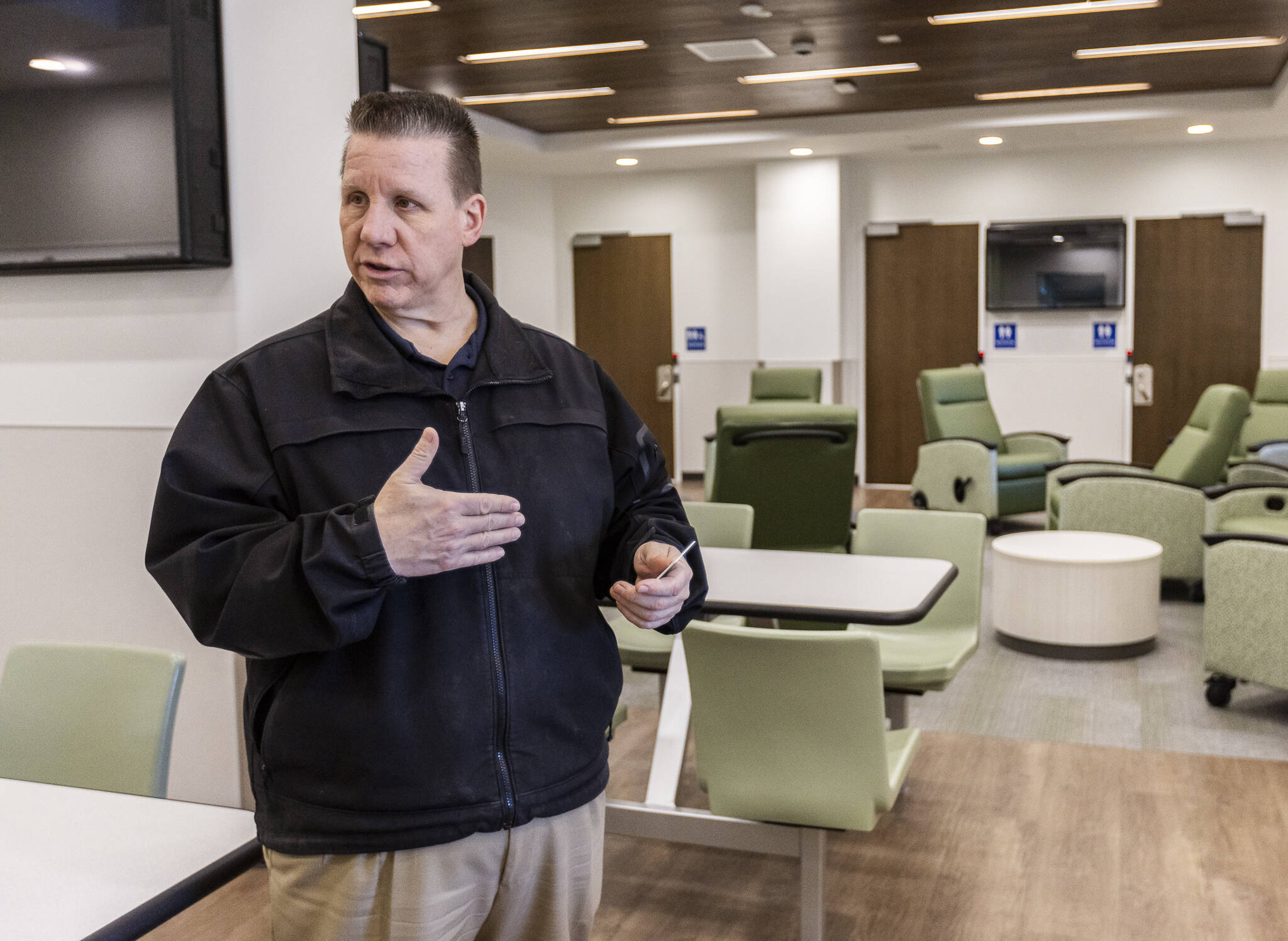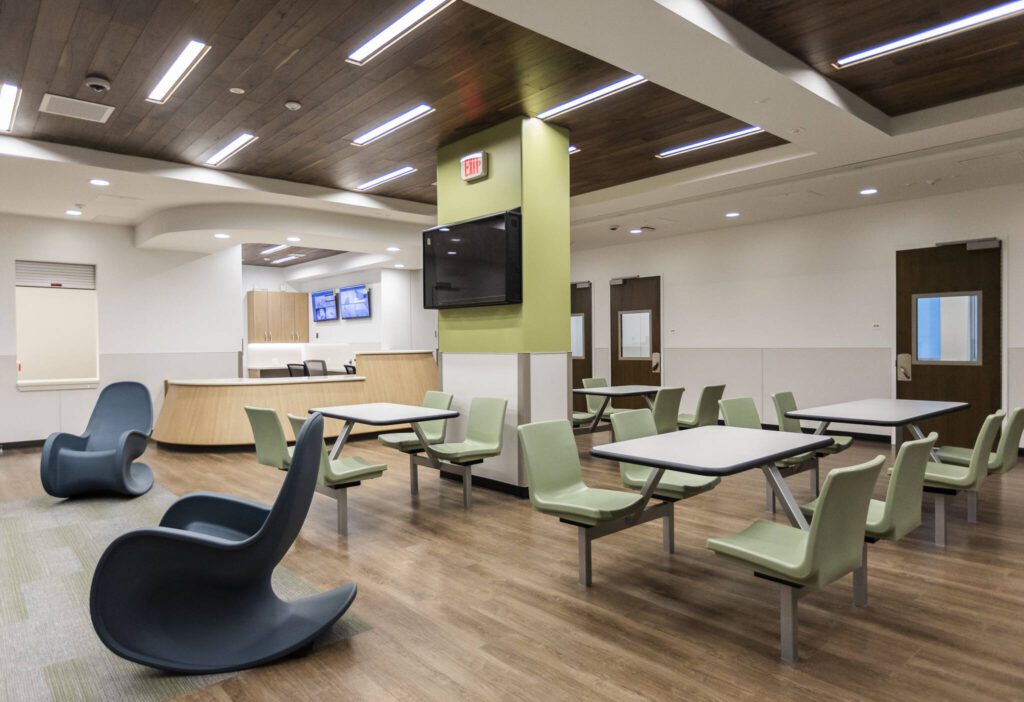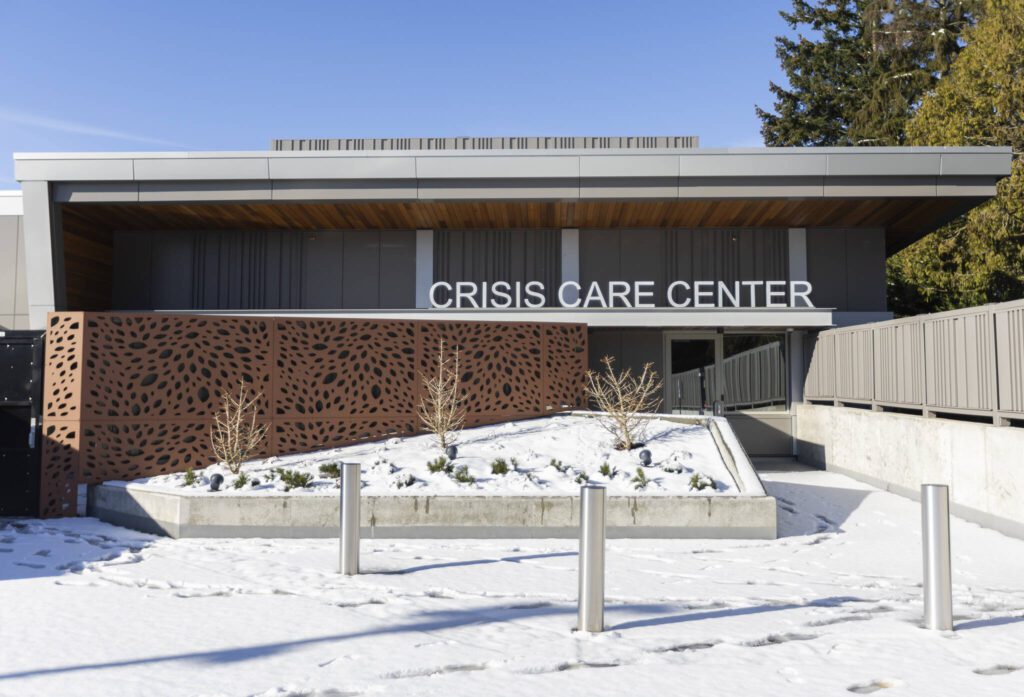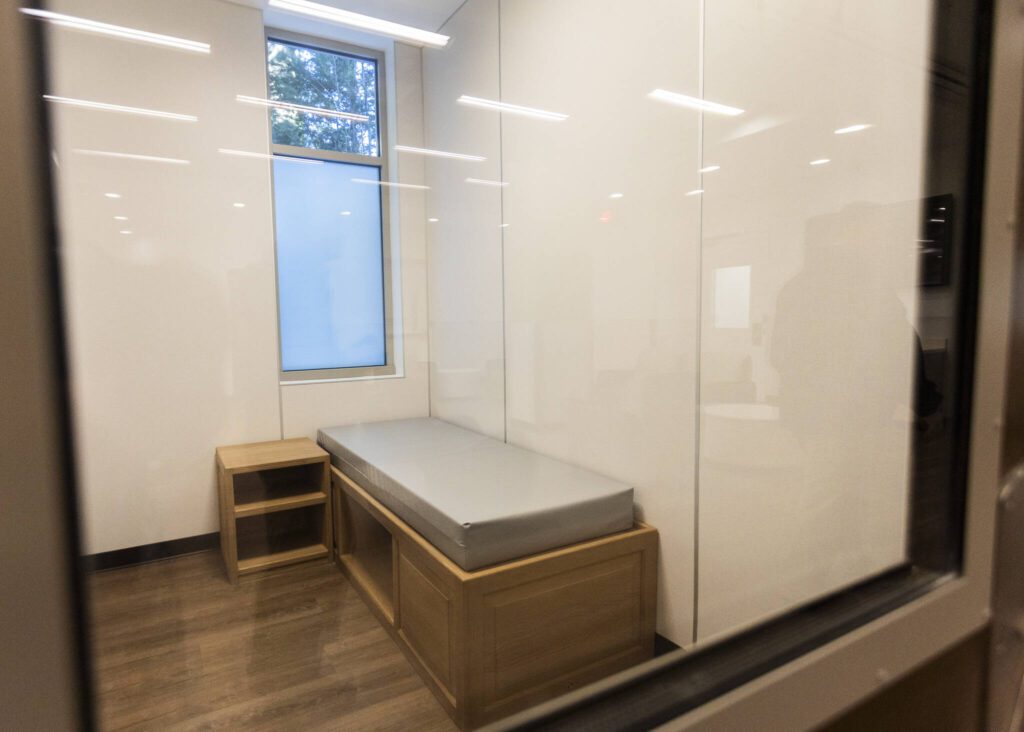LYNNWOOD — After nearly four years and more than $19 million, the Lynnwood Crisis Care Center is physically ready for operation.
An array of empty green recliners are scattered on the first floor, which is designed to be a 23-hour crisis center. The second floor has empty rooms, equipped with beds and windows for natural light, around its perimeter for longer-term care.
But the center won’t be ready for patients for the foreseeable future. Because of funding challenges at the state level, Lynnwood has been unable to find an operator.
After 47-year-old Tirhas Tesfatsion died by suicide while in custody at Lynnwood Municipal Jail in 2021, community members urged the city to reconsider its plans to build a new, bigger jail.
The city decided to dedicate part of the jail’s blueprint to a new recovery center. It would serve as an alternative to an emergency room or jail for someone who is experiencing a mental health or substance use crisis.
Late last year, a plan seemed set for the center to open. Recovery Innovations, an Arizona-based mental health provider, had been in talks to become the operator, said State Rep. Lauren Davis, D-Shoreline.
Crisis centers are relatively new in Washington. In the spring of 2023 , the state Legislature passed a bill to implement licenses for 23-hour crisis facilities. The Washington State Health Care Authority rolled out its financing plan for crisis care facilities a few months later, around the time Lynnwood finished constructing the center.
“That’s when the alarm bells started to go off,” Davis said.
Lynnwood built the crisis care center around a “firehouse” model, inspired by successful crisis centers in Arizona’s Maricopa County. Like a fire station, Davis said, the center would have a fixed number of staff members on shift, regardless of how many patients they have at any given time.
But the health care authority said it would fund the facility through a fee-for-service model. Payment would depend on how many patients the center serves and for how long. The provider would also need to negotiate separate rates for each of the state’s 19 health insurance carriers, which Davis said would be “quite burdensome.”
The health care authority reassesses reimbursement rates for Medicaid organizations every six months. Rates usually increase as more patients use a facility, Davis said, but if organizations are experiencing a six-month delay, they may not be incentivized to pay appropriately.
“It has created a model in Washington where anyone providing these services essentially can’t break even,” said Chuck Steichen, project manager and Lynnwood deputy chief of police.
About half of the patients at Kirkland’s crisis center pay with Medicaid, Davis said. The other half are either uninsured or insured through Medicare, Tricare or commercial insurance. Davis said the breakdown would likely be the same in Lynnwood.
“So even if you solve for the Medicaid challenges, that only covers half of your population,” Davis said.
The Lynnwood center would serve south Snohomish County, which would greatly benefit from a crisis care center, Steichen said.
“Right now, if you’re not a direct harm to yourself or others, I’ll try to find you a bed and make some calls,” he said. “But those are a dime a dozen. If you’re in true crisis and there’s not a facility around, then it’s a trip to the ER and they’re not really equipped and designed to do that.”
The financial model makes opening a crisis care center in Snohomish County difficult, as the county doesn’t get as much funding as others that have been successful.
For example, the state of Arizona provides Maricopa County with “huge supplemental funds” for crisis care services, Steichen said.
In April 2023, King County voters approved a nine-year levy specifically for funding crisis care centers, totaling $1.25 billion. Even then, Steichen said, the levy may not be enough if King County starts building more crisis centers.
Davis, along with other state legislators, is working on a bill during this year’s session to help address the financial concerns. The group has worked on other bills as part of the national “crisis now model.” Those bills led to Washington’s implementation of the 988 crisis line and mobile crisis teams, but the model isn’t complete until more crisis care centers are operating throughout the state, Davis said.
While the bill is still in its early stages, Davis said the group is discussing two main proposals.
First, it would implement a system in which Medicaid and commercial insurers pay proportionally depending on the number of patients using their services. Since the Kirkland center is seeing about 50% of patients using Medicaid and 11% using commercial insurance, Lynnwood would still need to find funding for the other 39%.
The bill would seek to increase the 988 fee for telephone users to close that gap. Currently, the fee is 40 cents per month. The original bill, which had bipartisan support in the state House, proposed a 75-cent fee until it was amended in the state Senate.
“The reason that it was bipartisan is because of what it was funding, and there was just such broad recognition of the severity and how widespread behavioral health crises are and that they’re affecting every district,” Davis said.
In the meantime, Steichen said the city plans to put out a request for proposal for interested providers. After it identifies a provider and the lease is signed, it would take about two months for the center to be operational.
“We’re at the point right now where we’ve done everything the state can provide,” Steichen said.
Correction: A previous version of this story misstated Rep. Lauren Davis’ name as Laura Davis. It also misstated that Recovery Innovations operates the Kirkland crisis care center facility, and that the state bill to implement crisis care center facilities was passed in July 2024.
Jenna Peterson: 425-339-3486; jenna.peterson@heraldnet.com; X: @jennarpetersonn.
Talk to us
> Give us your news tips.
> Send us a letter to the editor.
> More Herald contact information.






























